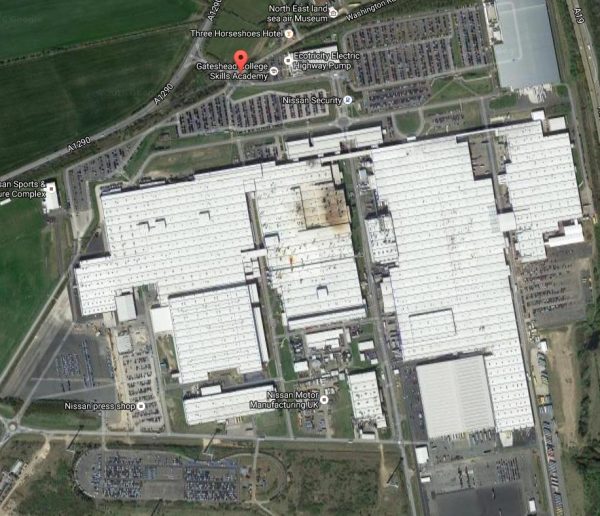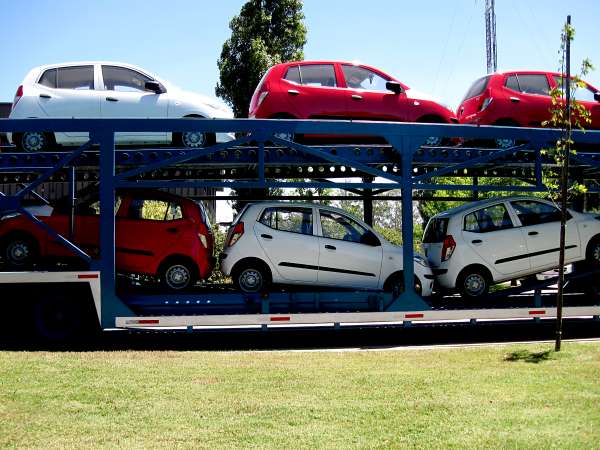All new cars will have some mileage on the odometer because they have to be driven. It starts by a short drive from the factory into a holding yard for a short test.

Nissan’s manufacturing plant in Sunderland is huge and is surrounded by parking areas for new cars awaiting shipping
Then they are driven from their position in the yard onto a car transporter or train. The car transporter or train takes them to the port where they are driven off and onto a car transporting ship (which can be more than 200m long). The ship crosses the sea and at the unloading port the car will be driven off and parked awaiting customs.
In the case of Nissan’s plant, shown above, vehicles bound for the UK market will simply be taken to a distributor, but for overseas-sourced vehicles, there is more moving to be done.

Cars waiting on a car transporter
Once customs is cleared the car will be driven onto a car transporter and sent to the main vehicle distributor for that marque. These distributors frequently have enormous yards for holding cars, and the vehicle might need to be driven half a mile to find its slot. Individual dealerships will request specific models and they will be loaded onto a car transporter and transported to the dealer.
Once at the dealers they will be driven off the transporter and onto the yard. If the car sits there a while it might be driven around the block to ensure it starts first time. The car will also be moved to get other vehicles out, or to freshen up the display.
There is no way of getting a car from the factory to the dealership with zero miles unless it is picked up by a crane and loaded into its individual container which is then shipped to the dealer’s door, which is impractical and expensive.
